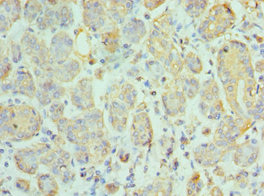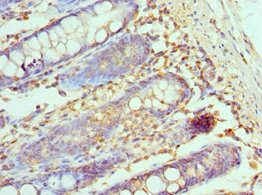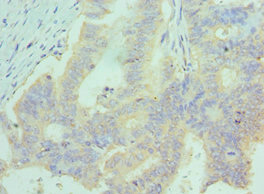Full Product Name
Rabbit anti-Homo sapiens (Human) CCL28 Polyclonal antibody
Alternative Names
C C motif chemokine ligand 28 antibody; C-C motif chemokine 28 antibody; CC chemokine CCL28 antibody; CCK 1 antibody; CCK1 antibody; CCK1 protein antibody; CCL 28 antibody; CCL28 antibody; CCL28_HUMAN antibody; Chemokine (C-C motif) ligand 28 antibody; chemokine (C-C motif) ligand 28 splice variant chi antibody; MEC antibody; Mucosae associated epithelial chemokine antibody; Mucosae-associated epithelial chemokine antibody; Protein CCK1 antibody; SCYA28 antibody; Small inducible cytokine A28 [Precursor] antibody; small inducible cytokine subfamily A (Cys-Cys); member 28 antibody; Small-inducible cytokine A28 antibody
Immunogen
Recombinant Human C-C motif chemokine 28 protein (20-127AA)
Immunogen Species
Homo sapiens (Human)
Purification Method
Antigen Affinity Purified
Concentration
It differs from different batches. Please contact us to confirm it.
Buffer
PBS with 0.02% sodium azide, 50% glycerol, pH7.3.
Tested Applications
ELISA, IHC
Recommended Dilution
| Application |
Recommended Dilution |
| IHC |
1:20-1:200 |
Storage
Upon receipt, store at -20°C or -80°C. Avoid repeated freeze.
Lead Time
Basically, we can dispatch the products out in 1-3 working days after receiving your orders. Delivery time maybe differs from different purchasing way or location, please kindly consult your local distributors for specific delivery time.
Usage
For Research Use Only. Not for use in diagnostic or therapeutic procedures.








